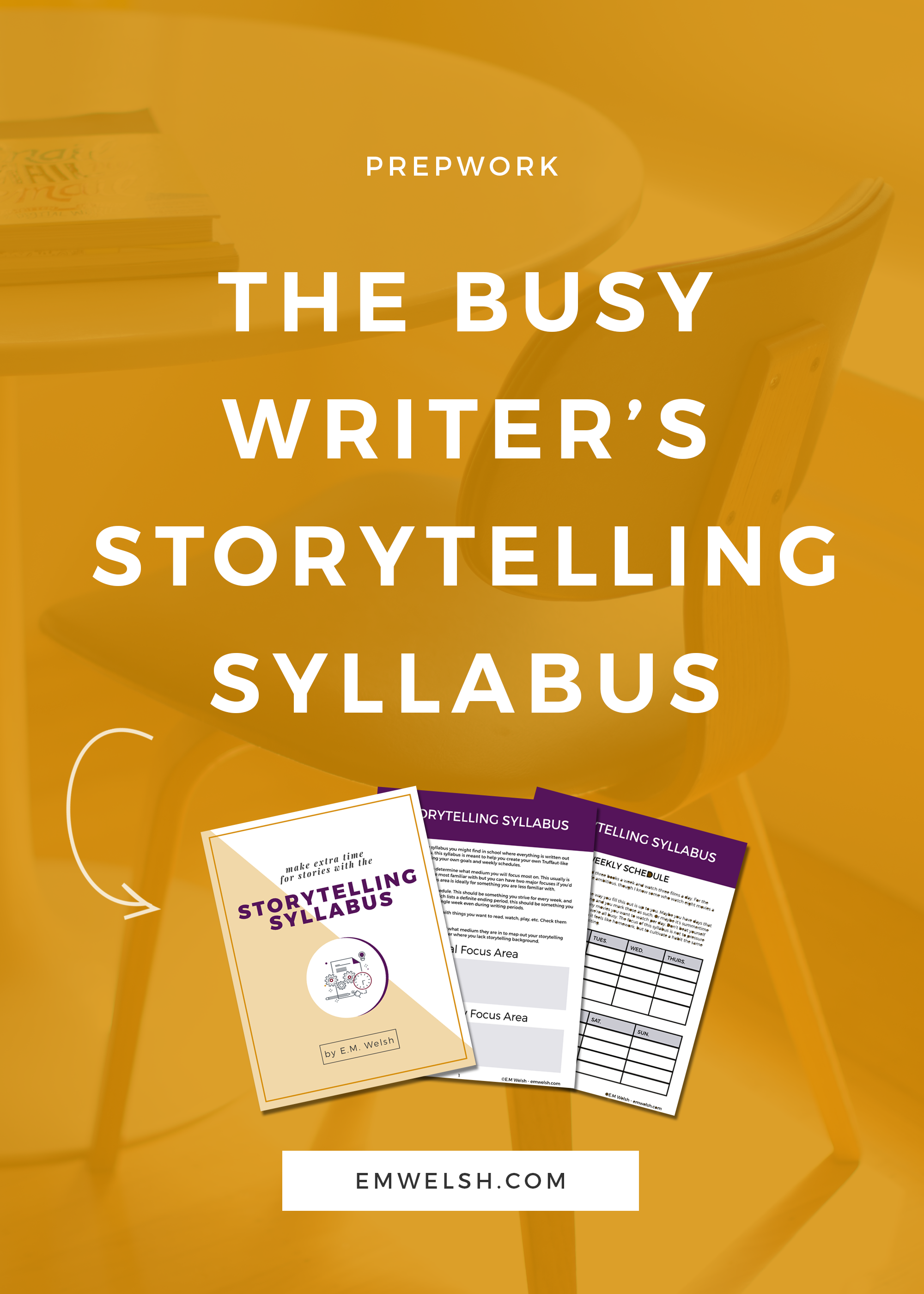How J.K. Rowling Mastered Writing in Different Mediums
/Every winter when everyone begins to snuggle up by the fire and celebrate the holiday season, I always feel a strong urge to return to my worn, yet beloved Harry Potter collection. Harry Potter, in many ways, is what made me who I am today. When I was younger and one of the last in my class to learn to read, Harry Potter became the entertaining push to keep me going. Very quickly it became an obsession and one that I have sustained throughout my entire life. With that obsession I developed a love for reading, but also other storytelling forms that I couldn't appreciate until I was much older and much more widely read.
As a child, since I loved Harry Potter so much, I wanted it in every single facet of my life. I wanted all the movies to accompany the books - and became equally as obsessed with those and their ability to bring this world I envisioned while reading to life - I wanted the board games and the matching wardrobes, but eventually I also wanted all the video games so I could explore these worlds I saw on the big screen on my own, dictating where and when I visited certain parts of the castle. This wish was granted and over time evolved into my love of all forms of storytelling, though I wouldn't make that connection until I began this blog several months ago.
(Note: this post contains affiliate links. You can read my full disclosure here.)
There are many franchises that start as books and evolve into movies or television series (Lord of the Rings, Game of Thrones) and in many ways those series embody a major part of my Storytelling System of beliefs. However, given that Harry Potter now exists as a play and Rowling has written her first screenplay, I decided she would be the first study I did of people who embody the benefits of my Storytelling System.
If you don't know what this Storytelling System is I am talking about, you can download a free 50+ page ebook on the subject here, but I'll give you a brief overview as well. As an undergrad studying both film and English, I encountered a lot of pushback against branching out to other mediums amongst other students. People always had excuses, most of them involving a lack of knowledge or "inborn talent" for one specific medium.
But I believed that that was a severe misunderstanding, having spent my entire time in undergrad trying out every type of writing possible, always seeking to tell the best story. There was no "inborn talent" for a certain medium - maybe just a preference or a deep knowledge that made that medium easier - and with the age of internet finding ways to learn new mediums is easier than ever, rendering any previous excuses about a lack of knowledge useless.
So I started this blog to help other people realize the same things I had, that when you develop one skill as a writer you are developing skills as a storyteller in general too - skills that can transfer to other mediums. I wrote the ebook listed above to help people train their minds to think in new ways about storytelling and today I am here with a real-life example to help others see how very possible it is to think in different ways for different mediums.
Prose
The prose is where it all began for Rowling and it's where it all began for me. As a child I wrote many beginnings of very bad novels that essentially copied what Rowling had done I admired her so much. Prose is clearly J.K. Rowling's bread and butter, just like it is mine. As the Harry Potter series grew, so did her novels in length, so that by the end she was able to fill the world with as much as she wanted, taking her time with the plot and the characters and creating arguably the best version of the series - the book version .
However, that idea brings me to my point that I don't believe it is always wise to compare books and their movie counterparts, but better to see how the two formats told the same story in their own unique ways.
So while the Harry Potter series as a book is still in my opinion the best format for the series - because it's the original and we are granted Rowling's timeless voice - the other mediums in which the story is portrayed still have unique things working for them, things the books could never do.
Playwriting
Even if Rowling did not actually pen Harry Potter and the Cursed Child, she had still had an impact on the story just like she did for the Harry Potter movies and video games. Yet what remains the most interesting about the play is how much it goes against traditional storytelling format, telling an incredibly lengthy, two-night piece. There are hundreds of scenes (literally) and the movement of the play is often strange and unlike the typical three act structure we are used to with the Harry Potter novels, yet it still works. However, when you read the play, even if you didn't like it, there are points when you know J.K. Rowling is speaking, when you know her fingerprint has been on a certain scene or piece of dialogue because it is so unequivocally her's.
As I have only read the play and not seen it, it is hard for me to discuss this in great length. However it's worth noting in the stage descriptions and transitions how well the story plays with the medium. It would be easy to just do a straightforward retelling, but the collective group of writers has fun adapting a story we are familiar with and reimagining it for the stage and even if the play itself as a book gets mixed reviews, when people see it acted out in person their opinions seem to improve immensely, a great example of how a story can change shape and embrace the new medium it lives in.
Screenwriting
Though the books do a great job creating images in our minds, there is something to be said about being able to see everything come to life. There's nothing like it. Seeing the magic happen, the world become colored and alive in front of our very eyes - there's a reason it's called "movie magic."
Yet with this magic often comes a lot of cuts. The film trims down everything, gets rid of anything that adds too much time or would distract from the main conflict, and to some completely strips away the art. Yet in my defense, what these films do for the Harry Potter franchise is demonstrate how strong the story still remains in its most simple form. Sure, the books are great for all the little details, but the movies demonstrate that even without those details, the story still remains incredibly solid. The story does not rely on writing style or other gimmicks to be good and so besides being a great visual aid to the books, the films demonstrate how strong the stories are regardless.
Seeing the books transferred to film would have been enough for me to argue that Rowling embodies everything about my Storytelling System, yet recently she wrote her very own screenplay, further embodying what it means to tell stories across various mediums. And when you read her script, Fantastic Beasts and Where to Find Them (which comes in this beautifully bound edition), it's clear that even if she had some help, she's thinking in a new way. She's thinking more visually with snappier scenes, yet it still remains undoubtedly her work. In fact, there are several scenes that had they been in a book form first, they likely would have been somewhat underwhelming, enabling Rowling to play up the visuals and demonstrate her talent as a storyteller, not just a novelist.
Video Game Writing
Though Rowling's work on the video games were minor compared to her help on the other projects, seeing how the franchise evolves from book to movie to video game is a great way to see the different ways the stories change and often return to their original form.
The Harry Potter video games are by no means masterpieces. In fact, most are very clunky. Yet one thing immediately one realizes when playing them is that what might have been left out of the movies are added back into the games because there is so much more time. In addition to that, the video games give you one thing Rowling and the accompanying movies never could: a chance to roam Hogwarts on your own.
While this main seem trivial, if you have loved the Harry Potter world as much as I have, getting to run around the castle is something that can entertain you for hours. But even better than that, the video games make you feel the anxiety and nervousness on Harry's behalf that you felt the first time you read the books or saw the movie, a feeling you'll get repetitively throughout the game and through future replays. So while they are the weakest aspect of the Storytelling System and only really aid those who have seen or read the series, the video game exist as a limb of the system and one to be taken seriously.
As you can see, while Rowling does not exactly write every piece that contributes to the Storytelling System, she as a storyteller has the ability to navigate between all the mediums easily, having tackled at least three of the four with actual writing or storytelling specific to that medium. I have no doubt that when given the task of writing a video game, she would do that effortlessly and creatively as well and she should exist as a model for all future storytellers out there (if she isn't already)!









